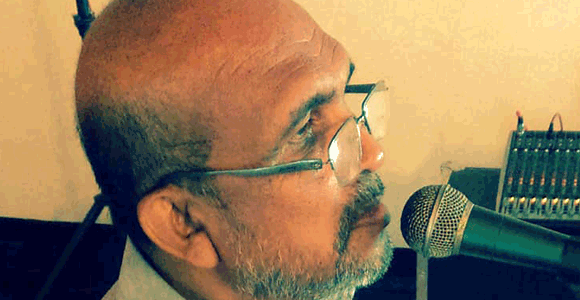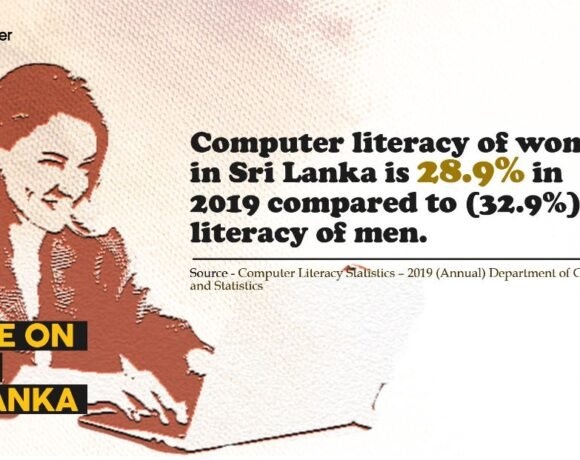
The Government is destroying the memories of Tamil people!
Keerthika Mahalingam
The present government is trying to erase the memories of people living in the North and East. It was suggested by the previous government that a practical mechanism should be put in place to build national peace and reconciliation between the parties divided due to racial conflicts and that the people should be made aware that doing so would be a way to heal those people. But all hopes are dashed and the present government is acting like the memories of the Tamil people can be forcibly erased.
I would like to point out that this causes more adverse consequences in society than the outcome they expect. Instead of building national peace and coexistence, such actions create conflicts. Here are some basic facts:
- The imposition of injunctions against the commemoration of Dileepan who passed away.
- Banning the ‘Mahaviru’ Commemoration Day celebrations
- The arrest of a Jaffna University Student
- Interruption against the ‘Karthigai’ lamp lighting
All of this happened over the past year alone. Apart from this, problems of land acquisition, enforced disappearances and displaced persons have not been resolved so far.
‘Mahaviru’ Commemoration Day has been celebrated since 1989, but after the civil war, ‘Mahaviru’ Commemoration Day was established to commemorate those who died in the war. The previous government issued a restraining order against the celebration of that day. November 27th was declared as ‘Mahaviru’ Commemoration Day to commemorate a person called Sathyanathan, the first LTTE cadre to be killed. The day was allowed to be celebrated during the period of good governance. They allowed the Tamil people to remember their dead relatives and reflect on their memories, not only as a sanction but also as a human right.
However, the present government banned the commemoration of ‘Mahaviru’ Commemoration Day in the early days of coming into power. This is a coercive attempt to erase the memories of the Tamil people. These prohibitions were also imposed illegally.
As the LTTE is a banned organization in Sri Lanka and the Covid-19 curfew has already been enforced in the country, the celebration of ‘Mahaviru’ Commemoration Day was banned under Article 120 of the Penal Code, which is likely to intensify dissent or malicious activities in the country. Following the issuance of appeals by the police in all the six courts in the North and East, the government imposed a restraining order against the ‘Mahaviru’ Commemoration Day celebrations this year.
It is noteworthy that such prohibitions were in force even during the tenure of the present government representatives prior to the period of good governance. The present government is still operating on the unrealistic notion that coexistence between communities can be built by destroying the identities of others. Many in parliament and on various platforms have spoken out against the government, saying that imposing injunctions without allowing the Tamil people to remember their dead relatives is a violation of human rights and that the government is abusing its power.
It was even suggested in Parliament that the government should allow the celebration of ‘Mahaviru’ Commemoration Day, just as the government had given permission to commemorate the deaths of armed JVP comrades who rebelled against the government. Similarly, the government had issued a restraining order against Dilipan’s commemoration. The Jaffna court has issued a restraining order under the Criminal Procedure Code against Dilipan’s commemoration after the police issued a ‘B report’ to the court stating that Dileepan’s commemoration would cause a stir in the society as per Section 106 of the Penal Code.
It can be said that such actions by the majority, including the government, are a violation of basic human rights, as parents mourn the loss of their children who died in the war and are unable to comfort their brothers and sisters.
In addition, the police arrested students who lit lanterns (Karthigei Deepam) near the gate of the Parameswaran Institute established at the Jaffna University premises and kicked the lanterns in order to sabotage the preparations for lighting the Salambe Kovil in Mallagam. Also, the Chunnakam police threatened people, telling them not to light lamps in Hindu temples. ‘Karthigai Theebam could not light the lamps in November because of the zeal of such officials who look at everything from a racist perspective and act without context..
This violates the fundamental right of people to follow religious practices and thus affects the co-existence of the whole country. The government’s continued denial of the democratic rights of the Tamil people and the heritage they demand is the root cause of the escalating ethnic tensions in Sri Lanka. In today’s society, Tamils are unable to develop a sense of identity. Therefore, fear that the history of past brutal killings will be repeated in society is still ingrained in everyone’s mind.
The government has exercised its authoritarian power in all places, from attempts to establish Buddhist identities in places where there are no Buddhists, to the resettlement of them. How can such actions bring about national reconciliation? Poor people are still taking to the streets in the North and East, demanding that the government take legal action for the relatives of those who were forcibly abducted and displaced. It has already been more than a decade since the end of the civil war, but the Tamil people continue to be treated as terrorists due to such atrocities that undermine the coexistence between the government and the Tamil people. The national development goals of the country can be easily achieved by creating social, economic and political prosperity. Accordingly, the mindsets of the people should be understood as the first step towards social coexistence. Implementing further physical development activities without fulfilling such reasonable aspirations of the people are fruitless.
It can be pointed out that the policy gap between the two parties is one of the main reasons for this. Co-existence can be rebuilt by re-establishing the lost legal background or by paying compensations. In that case, the law should be enforced fairly for all, with an open mind about which party has committed what and how it has been done wrong. Doing so will prevent unjust acts in the future. At the same time, such actions will go a long way in preventing the development of problems of peace and harmony among nations. Without national and religious reconciliation, a country cannot be sustainable. The three words ‘National Peace, Reconciliation and Coexistence’ have been around for over 70 years since independence. But we continue to fail and are unable to put into practice the meanings contained in those words. No party can win this alone. In order to build national peace and reconciliation in Sri Lanka, all parties must work together to move in the right direction. National peace and reconciliation can only be put into practice if politics is carried out in such a way that individual rights are not violated and individual sentiments are not harmed.








